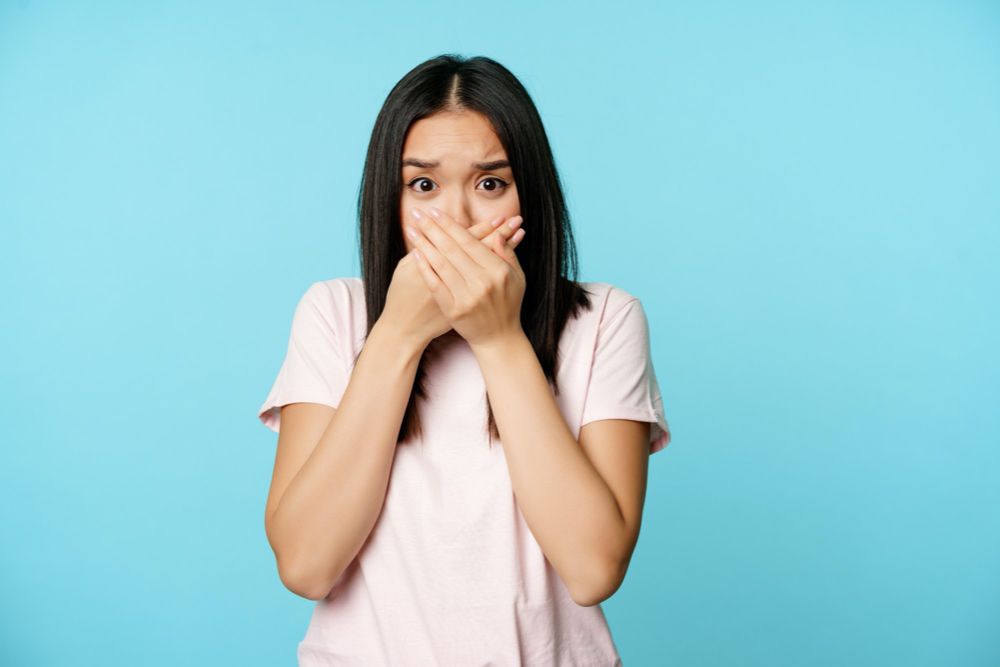- Fast results
- 4,000+ locations
- 4.8 star rating
Need Help? (888) GET LABS

Vaping continues to be a popular habit, in lieu of cigarette smoking, especially among young people. However, it comes with its own health risks that can be overturned if you decide to ditch the vape. Below, we outline the benefits and side effects of quitting vaping.
Electronic cigarettes, which include vaping, have been known to cause lung problems and nicotine dependence(1) despite its original advertisement as a safer alternative to cigarettes. That said, quitting vaping can overturn its harmful impact, especially when done early. The following points highlight the health benefits of ending vaping.

Vape pens use e-liquids that may contain nicotine. In cases wherein nicotine is not present or reduced in concentration, other chemicals are still added that may become harmful when inhaled. These may include heavy metals, flavorings, and volatile organic compounds.
Consistent vaping naturally increases your exposure to these harmful substances that cause airway irritation, inflammation, and mucus hypersecretion(2). The lungs may experience dysfunction and damage, resulting in asthma, chronic obstructive pulmonary disease (COPD), and cystic fibrosis.
Considering all these conditions, quitting vaping can significantly boost lung health. Inflammation is greatly reduced, and breathing capacity improves. Plus, your respiratory cilia(3), which protect the lungs from foreign particles and microbes, regenerate better.
Vaping can diminish your senses of taste and smell(4). The contents of vape juice, such as vegetable glycerin and propylene glycol, can overwhelm your taste buds. As a result, your tongue does not easily pick up flavors, which extends outside your vaping session.
On the other hand, vaping dehydrates the nasal passage and mouth. Aside from the potential tissue irritation, the lack of moisture can dull your sense of smell.
Quitting vaping will allow you to reset your ability to smell and taste foods. It promotes healthy regeneration of taste buds and prevents dryness in the nasal cavity.

The lack of moisture in the mouth and throat gives way to bacterial growth that causes bad breath. When you stop vaping, your saliva production returns to normal, which keeps a healthy balance in the bacterial population, minimizing the population of the odor-causing bacteria.
Vape aerosols damage the endothelial lining of your blood vessels(5), impacting blood vessel function. Additionally, nicotine is notorious as a substance that increases blood pressure and heart rate, as well as influences plaque buildup. Hence, if you vape regularly, you increase your risk of developing cardiovascular disease.
When you stop vaping, your endothelial lining to heal and improve heart function. As your nicotine intake gradually reduces, your blood pressure and heart rate also go back to healthy levels. Your risk of blood clots is reduced, and by extension, heart attacks and stroke.
Also Read: 5 Compelling Reasons Why You Should Get Tested for Heart Disease in Your 20s
Certain e-liquids and vaping pens potentially contain cancer-causing chemicals or carcinogens(6). These include heavy metals, flavorings like diacetyl, formaldehyde, and volatile organic compounds. Long-term exposure to these substances may contribute to cancer formation.
Although more studies are required to fully understand the direct association of vaping with cancer, it’s clear that the items involved in the habit alone can possibly trigger cancer. Hence, when you stop vaping, you protect yourself from this fatal disease.
Also Read: 10 Health Habits You Should Practice To Prevent Cancer
With regular vaping, certain immune cells can fail to function properly. For example, natural killer cells(7), which eliminate viruses and inhibit tumor formation, become suppressed, especially after contracting a live attenuated influenza virus. Add in vaping’s ability to trigger inflammation and tissue damage, and your immunity becomes less effective.
Quitting vaping can enhance immune system function. You’ll regain your natural protection against infections and prevent other health complications.
E-cigarettes, like vapes that contain nicotine, can alter your brain chemistry. After all, nicotine is a stimulant that provides temporary alertness. However, constant nicotine intake adversely impacts your acetylcholine system, which plays a role in your memory formation and focus.
When you stop vaping, you might experience anxiety and depression during the first week after withdrawing. But when you pass this stage, your brain reboots, and your brain chemistry stabilizes. This improves concentration and your overall mood.
The benefits of quitting vaping are known to be more long-term than the pleasure it provides. However, this deed comes with its own initial challenges. The first few days can be unpleasant due to the withdrawal symptoms. Of course, the severity depends on how much planning you’ve put into it.
Quitting smoking cold turkey may work for others, but to some, it can exacerbate these side effects. The best way to avoid or minimize withdrawal symptoms is to understand how your body reacts to nicotine detoxification and prepare a solid plan to ease the experience. Here’s the potential detox timeline after you stop vaping:
| Did You Know? The withdrawal symptoms you experience from stopping vaping can be traced to the body’s effort to adapt without the nicotine in the system. Hence, the side effects are similar to when you stop smoking. That said, these common mistakes when quitting smoking apply to vaping, too. |
Also Read: Blood Test for Smoking: What You Need To Know About the Nicotine/Cotinine Test
The most challenging day when you’re withdrawing from nicotine varies from person to person. In most cases, however, the first three to five days are considered the hardest when you quit smoking or vaping because the physical effects of the withdrawal symptoms typically intensify during this period.
You will likely feel tired when you quit vaping, especially during the first week when the withdrawal symptoms kick in. Keep in mind that vapes contain nicotine, which is essentially what you’re giving up. Nicotine is a stimulant. Hence, flushing it out of your system can bring your energy down, causing fatigue.
The only way to detox your body from vaping is to quit. However, cleansing nicotine out of your system requires careful planning. If you stop vaping immediately, you’ll likely experience harrowing withdrawal symptoms. Fortunately, you can prepare your body for these side effects of quitting vaping. Prepare a nutrient-rich diet plan, remain hydrated, and avoid triggers to manage the symptoms.
Reclaiming your health can start by removing vaping from your routine. While it sounds simple enough to do, the beginning of the process can be extremely unpleasant, especially as your body starts to detox the nicotine. Fortunately, you can manage the withdrawal symptoms. In doing so, it’s crucial to understand the side effects and that they are temporary. As bad as they can be, the benefits of quitting vaping still outweigh them.
1 Kathuria H. Electronic Cigarette Use, Misuse, and Harm. Med Clin North Am. 2022 Nov;106(6):1081-1092. doi: 10.1016/j.mcna.2022.07.009. Epub 2022 Oct 4. PMID: 36280334.
2 Thirión-Romero I, Pérez-Padilla R, Zabert G, Barrientos-Gutiérrez I. RESPIRATORY IMPACT OF ELECTRONIC CIGARETTES AND “LOW-RISK” TOBACCO. Rev Invest Clin. 2019;71(1):17-27. doi: 10.24875/RIC.18002616. PMID: 30810544.
3 Gotts JE, Jordt SE, McConnell R, Tarran R. What are the respiratory effects of e-cigarettes? BMJ. 2019 Sep 30;366:l5275. doi: 10.1136/bmj.l5275. Erratum in: BMJ. 2019 Oct 15;367:l5980. PMID: 31570493; PMCID: PMC7850161.
4 McCormack JC, Agbor Epse Muluh E, Mo Y, McLeod SC, Turner S, Ghelot DS, Browne H, Bullen C, Peng M. Does vaping affect the taste and smell perception? An exploratory study with New Zealand young adults. Appetite. 2024 Apr 1;195:107236. doi: 10.1016/j.appet.2024.107236. Epub 2024 Feb 1. PMID: 38307298.
5 Mohammadi L, Han DD, Xu F, Huang A, Derakhshandeh R, Rao P, Whitlatch A, Cheng J, Keith RJ, Hamburg NM, Ganz P, Hellman J, Schick SF, Springer ML. Chronic E-Cigarette Use Impairs Endothelial Function on the Physiological and Cellular Levels. Arterioscler Thromb Vasc Biol. 2022 Nov;42(11):1333-1350. doi: 10.1161/ATVBAHA.121.317749. Epub 2022 Oct 26. PMID: 36288290; PMCID: PMC9625085.
6 Sahu R, Shah K, Malviya R, Paliwal D, Sagar S, Singh S, Prajapati BG, Bhattacharya S. E-Cigarettes and Associated Health Risks: An Update on Cancer Potential. Adv Respir Med. 2023 Nov 14;91(6):516-531. doi: 10.3390/arm91060038. PMID: 37987300; PMCID: PMC10660480.
7 Rebuli ME, Glista-Baker E, Hoffman JR, Duffney PF, Robinette C, Speen AM, Pawlak EA, Dhingra R, Noah TL, Jaspers I. Electronic-Cigarette Use Alters Nasal Mucosal Immune Response to Live-attenuated Influenza Virus. A Clinical Trial. Am J Respir Cell Mol Biol. 2021 Jan;64(1):126-137. doi: 10.1165/rcmb.2020-0164OC. PMID: 33095645; PMCID: PMC7781000.
